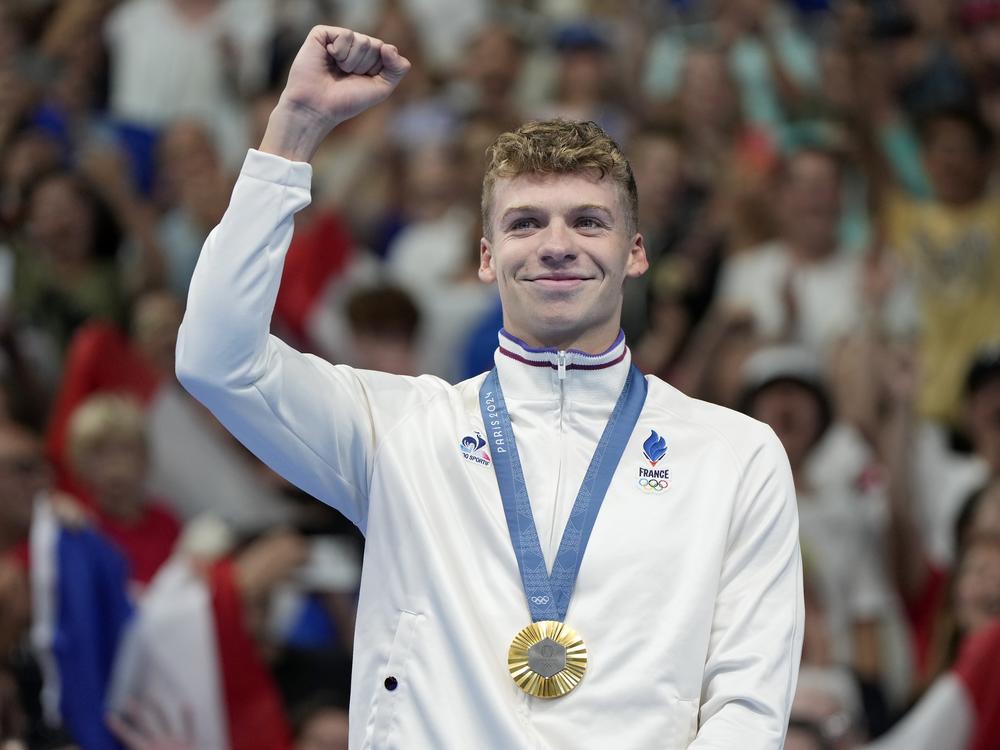Section Branding
Header Content
French Olympian Leon Marchand trains in the U.S. He thrilled Paris with swimming gold
Primary Content
NANTERRE, France — Moments after thousands of his countrymen sang a deafening treatment of the French national anthem in La Defense arena outside Paris, Leon Marchand broke away from a pack of elite swimmers in the men's 400 meter individual medley final.
"It was an amazing time for me," Marchand said after the race, in which the 22-year-old scored his first Olympic gold. "I was really living it in the moment."
Marchand, who competed for Arizona State University and now lives in Austin, Texas, dominated the event which combines freestyle, back, breast and butterfly strokes.
At times during the race Marchand was so far ahead he seemed to be swimming in a different pool.
In a sport where victories are often razor-thin, he touched the wall more than five seconds ahead of Japan's Tomoyuki Matsushita, who took silver.
The finish of 4:02:95 was strong enough to set a new Olympic record, shattering the mark set by Michael Phelps in 2008 at the Beijing Games.
"I had goose bumps on the podium," Marchand said. "I felt really proud to be myself and to be French."
A symbol of Frenchness who competed for Arizona State University
Marchand, with his boyish good looks, has emerged as a national icon of these Paris Olympics. After his win Sunday night, French President Emmanuel Macron called to offer congratulations.
Bob Bowman coached Marchand at ASU before he turned pro this spring and helped prepare him for these Olympics.
"That was a great swim," he said, describing Marchand as the best ever in this event. "He can swim faster than that. He's got the speed, he's got the endurance."
American swimmer Carson Foster also turned in a strong performance in the medley final to capture an upset bronze medal.
"I haven't had good races in big moments, so tonight just felt good," Foster said.
But he too seemed awed by Marchand's performance and by the roaring French crowd.
"It was pretty wild," Foster said of the atmosphere in the packed arena. "It was special for Leon to be able to do that in his home country. I'll be able to tell my kids about that some day."
One more silver for the U.S. swimmers
In another come-from-behind upset for U.S. swimmers, Nic Fink surged to a tie with legendary British Olympian Adam Peaty for a silver medal in the men's 100-meter breaststroke final.
Peaty had been heavily favored in the race.
"There weren't many thoughts going through my head," Fink said of his surprise medal performance. "It was just kind of go-go-go. I knew it was going to be really close and everyone was within a fingernail."
Fink and Peaty finished a fraction of a second behind Italian Nicolo Martinenghi who won the gold medal, his country's first at these Games.
Reporting contributed by NPR's Becky Sullivan in Nanterre, France.



